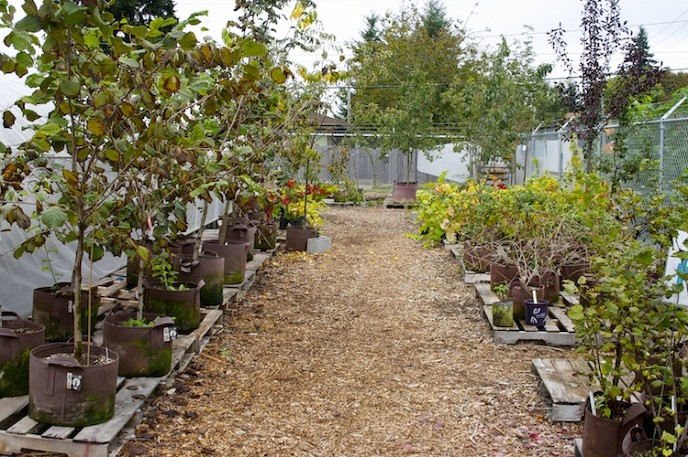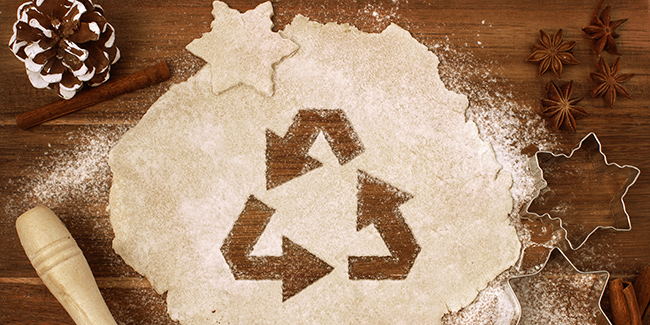|
Safest Holidays to All
We often write that we’ve waited for the gifts of spring or summer all year long and maybe that’s the way to think about winter as well. We’ve been patiently waiting for the rain to replenish streams, waiting for a chance to read the books on our list, and waiting for the time to slow down to allow reflection and planning during these longer nights for sunnier days to come.
Many of us will find ourselves entertaining guests sometime during this cozy winter season. Here are some simple ways to be the host with the most (safety):
- Entertaining older folks or kiddos? Look for tripping hazards like cords and area rugs. If practical, pick up loose rugs before guests arrive and make sure cords are tucked away.
-
If asking guests to remove shoes at the door, make sure to have slippers or non-skid socks available for guests.
- Make sure that any hazardous products like cleaners or art supplies are stored out of the reach of children. Get rid of unwanted hazardous products for free before guests arrive!
-
If you have a gun in your home, make sure that it is secured in a safe.
Hosting guests can feel a bit hectic but try to enjoy yourself and create memories by playing games together, have a holiday song-sing-along or take your crew on a chilly walk with promises of hot cocoa upon your return! If they don’t want to join you, take a walk on your own and remember that soon enough your home will return to a bit more quiet.
| |
|
Benefits of Indoor Plants
Studies show that spending time in nature improves mental and physical well-being. Since many of us spend so much time indoors, having indoor plants can provide some of the benefits of spending time in nature, right inside our home.
Plants help us feel connected to nature and are an excellent way to bring nature indoors, especially for those with mobility issues or illness. Indoor plants help create a peaceful environment which may help reduce feelings of stress or anxiety. Caring for houseplants is a positive way to relax and provides a sense of accomplishment. A calm mind from taking care of, or simply being around, indoor plants may even boost mental focus and productivity.
Plants also help us feel connected to others. It is great fun to take “cuttings” or propagate your existing houseplants and share them with friends and family. Check out your local plant shop for information on houseplant clubs and plant swap events (yes, they do exist). Socializing with others, whether in-person or virtually, about a shared hobby can improve your mood, especially during the dark winter season.
Some studies, although limited, have shown that indoor plants may improve indoor air quality by adding oxygen and humidity to the air while removing unhealthy gases such as benzene, formaldehyde, and trichloroethylene. NASA created a list of houseplants that most efficiently clean the air. In addition, a strategically placed houseplant may help to moderate indoor air temperature, such as placing a large plant in front of a bright, sunny window to provide some shade.
Visit your local nursery or plant shop to choose from a wide variety of indoor plants. Different plants have different requirements for light, water, soil, and space. For those with young children or pets, it is important to know that some plants are poisonous or may cause illness or other side effects if consumed. Nursery staff can help you decide which plants will work best for your home environment.
| |
|
Plant Trees
Winter is a great time for planting trees in the Pacific Northwest. In general, tree planting season is when trees are dormant, usually between November and March. Follow these general tips for adding trees to your landscape:
- Choose tree varieties that are going to do well in the area of your yard that you have in mind. Determine how much sunlight or shade the type of tree you want to plant thrives in.
- Can you protect the tree from deer while it’s small? Most trees will need some type of metal “cage” around it to protect it from browsing animals like deer.
-
Always know how large the tree is going to get at full size before planting to make sure that it is a good fit for the space. You don’t want branches too close to your home and pruning when trees get large can be a real pain for the average (busy) person. Make sure that you aren’t going to encroach on your neighbor’s property.
-
Are you seeking shade? Planning to harvest fruit? Trees are a long-term investment in your yard so make sure that you are choosing the tree that can provide what you are seeking.
- How will you water the tree? Even native trees will need water for the first few years and easy access to water is necessary.
- Trees should be at least 30 feet away from all of the components of your septic system, including the drainfield.
Find great tree varieties for the Pacific Northwest.
Plant native trees.
More information on landscaping your septic drainfield.
Finally, here is an upcoming plant sale to purchase low-cost trees to plant!
|  | |
|
Lawn: Winter Won’t Last Forever
Winter is a great time to think about what worked well in your lawn care routine and what needed more time or attention. Consider where most of your energy was spent, for example, did you spend more time weeding your lawn than enjoying it? Maybe it’s time to invest in corn gluten meal for weed control or plan to aerate and overseed with a low maintenance grass blend in early spring.
We had plenty of rain until July and then little moisture at all until the end of October. How did your watering plan work out? If you are using irrigation, does the water miss the edges, encouraging weeds to thrive, or does it extend water to areas beyond the yard, wasting precious resources and running off pollution into nearby streams?
If it’s time to get help, whether downsizing your lawn, planning efficient irrigation, improving drainage and nutrient uptake, or simply creating an easier-to-maintain lawn, an ecoPRO can help. ecoPROs are landscape professionals that have completed training on the safest, healthiest landscaping practices for your family and our planet.
If you prefer to do it yourself, look for the safest products and tools at www.growsmartgrowsafe.org and be ready for the seasons to come.
Follow your garden tools’ owner’s manuals for how to best store your power tools for the winter.
Most of us have a lawn because we want a place to lay out a blanket on a warm day, throw a toy for a pet, or add a welcoming appeal to our home. Make sure that you are spending at least as much time enjoying your lawn as you are maintaining it!
| |
|
Q: Is it too late to plant spring flowering bulbs?
A: According to the calendar, October through late-November is the optimal window for planting spring-blooming bulbs in the Pacific Northwest. BUT…this year, summer lasted nearly through October and winter seemed to follow right behind, so our gardening hunch says, go for it! Plant spring-flowering bulbs like daffodils and tulips by the end of December but wait until April for summer-flowering bulbs like dahlias, lilies, and Ranunculus.
| |
|
Wasteless Holidays
Just a little reminder that seasonal celebrations don’t have to break the bank or your trash cans! Instead of competing to see who got the most or bought the most, let’s see who can have the most fun! What if the “goal” is to create and strengthen family and community connections and feel satisfied without stress and a financial hangover at the end of the season?
Here are some ideas for creating more fun and less waste:
Create traditions that satisfy your desire to create and share joy. Sharing special music and food, making cards, a day dedicated to pajamas and movies…whatever actually sounds fun without the need to buy more stuff.
Give gifts of time. See a play, prepare a special meal together, plan a road trip to the mountains or ocean, bring board games and actually play ‘em… again, whatever actually sounds fun without the need to buy much!
Wrap practical gifts like socks, books, and chocolate (when in doubt, a little chocolate goes a long way!) in reusable bags or new kitchen towels. Last year’s calendar pages, old maps, or magazine pages make fun wrapping paper.
Buy only the amount food that will get eaten, and send guests home with leftovers.
New traditions can take time to incorporate so start small and flex your wasteless muscles one step at a time.
For more ideas check out:
This FREE event on December 17 at the WET Science Center,
www.nrdc.org/stories/10-tips-hosting-wonderful-and-waste-free-holiday,
Create Memories, Not Garbage,
Where Do I Take My? directory for disposing cards, wrapping paper, boxes, batteries, trees, etc. after the holdays
|  | |
|
Connect to Farmers
Olympia Farmers Market
Saturdays and Sundays,
December 1-18
10:00am-3:00pm
Holiday Shopper's Delight:
December 22, 23, and 24
Saturdays in January, February, March
10:00am-3:00pm
700 Capitol Way N
Olympia, WA 98501
(360) 352-9096
www.olympiafarmersmarket.com
The Farmer's Basket is an online resource designed to connect people seeking local, farm-fresh food with the wealth of our local farmers.
| | | | | |